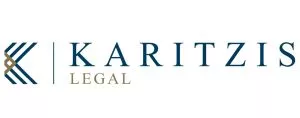Since the first discussions of the use of Maritime Autonomous Surface Ships (MASS) there are many debates and concerns on whether the current legal framework, namely the 1982 Law of the Sea Convention (LOSC), is adequate and remains fit for its purpose. The use of MASS implies that a master and the rest of the crew on-board a vessel “disappear”; does this therefore necessitate the fundamental change of the current legal framework?
Besides LOSC, many international legal rules concern MASS, such as the International Convention for the Safety of Life at Sea (SOLAS). The most problematic aspect of the use of MASS as far as the international law of the sea is concerned, is when the MASS is operated from an on-shore remote control center or when such operation is performed by an algorithm on a computer.
There are a variety of viewpoints, ranging from the belief that MASS do not fall under the scope of LOSC since they are not considered to be ships, to the belief that no difficulties would occur since they are ships. Accordingly, certain articles of the LOSC exist which refer to masters, officers or crew, whom the flag State rely upon in order for certain obligations of the latter to be performed. An example of such responsibility/obligation is that a flag State must ensure that its ships have a master and officers who possess appropriate qualifications.
In general, the LOSC does not provide any specific guidelines to the flag State in terms of granting its nationality to the ships for their registration and for the right to fly its flag; the only requirement provided in the LOSC is that there must be a “genuine link” between the State and the ship. It can be assumed that a genuine link exists when the flag State has actual authority over the ship. The issue here is how such control/authority can be established when the operation of the vessel is controlled remotely in another State's territory?
One possible solution is to consider such onshore controller as a master, nevertheless, this may also be problematic. The LOSC makes reference to a single master and thus, the difficulties will arise notably in terms of labor standards, when there are one or more controllers in such onshore remote-control center.
For the sake of argument, if such controller is considered to be a master pursuant to LOSC, in order for a flag State to satisfy its duties, namely to exercise effective jurisdiction and control, it would require the latter to do more in relation to MASS when comparing it with a manned vessel. For example, an existing argument is that in the event that something unexpected happens, there is the need to have in place extradition arrangements between the concerned States. Another recommendation which was made, was to include an annex in the current LOSC which will regulate the issue of MASS.
There are alternative methods however which may be considered as a way of regulating MASS: the International Maritime Organisation (IMO) recently considered whether its current conventions concerning safety of navigation, i.e. SOLAS, can be amended to safeguard the conformity thereof by the use of MASS.
Undoubtedly, the current legal framework is inadequate in relation to the use of MASS and therefore, any conformity with the existing legal rules is impractical. One can argue that any amendments to the LOSC may be undesirable and/or unfeasible for various reasons. Nevertheless, without any tailored-made regulations for MASS, flag States could potentially hesitate to register MASS and in general fly their flags. It is of vital importance for the IMO and the competent authorities to implement a comprehensive set of guidelines in relation to the use and operation of MASS.
Originally published 29 March, 2022
The content of this article is intended to provide a general guide to the subject matter. Specialist advice should be sought about your specific circumstances.


